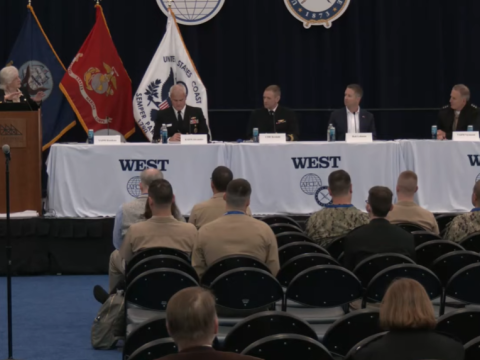Teamwork Defines Homeland Security Success
Homeland Security and the global effort against terrorism are incredibly complex activities. The organizations and individuals are just as complex. The homeland security establishment in the United States—as the collection of government agencies at the federal, state, local and tribal levels and the affected industries are referred to—numbers in the thousands of entities. There are 22 agencies in the Department of Homeland Security along with numerous others at the federal level, including the Department of State, the Department of Justice, the Federal Bureau of Investigation, the Department of Transportation, the Department of Energy, the Department of Defense, the intelligence community and many others. Now add in the Homeland Security agencies, law enforcement agencies and other first responders at the state, local and tribal levels. Still more complex is the industrial base that supports the homeland security establishment and those in industry that own and/or operate the critical infrastructure in the United States.
In case those outside the United States are breathing a sigh of relief that they do not have to put up with such a structure, they should not be so hasty. Most other nations have similarly complex national structures, and Europe also has the security apparatus of the European Union.
So what hope is there that this complex structure could work to provide the necessary security? This truly is a team effort. The team is international, as countries necessarily share information on possible threats. A tremendous amount of information sharing and coordination takes place continuously. The many threat vectors require a multidisciplinary approach.
Recognizing all of this, AFCEA International significantly has enhanced its engagement with the homeland security establishment. The association has created a new Homeland Security Department at headquarters run by Dr. Vince Patton, the retired 8th Master Chief Petty Officer of the Coast Guard. He provides staff coordination for two robust functional committees.
First is the reorganized Homeland Security Committee, designed to reinforce the new department fully. Chaired by Paul Schneider, former deputy secretary of Homeland Security and a principal in The Chertoff Group, this committee consists of 35 senior members of government, industry and academia, focused on engagement with the homeland security community. The composition of this committee reflects the multidimensional nature of homeland security.
Second is the Cyber Committee, co-chaired by Lt. Gen. Charles Croom, USAF (Ret.), former director of the Defense Information Systems Agency and commander of the Joint Task Force—Global Network Operations, and current vice president of Cyber Security Solutions for Lockheed Martin Corporation; and Zal Azmi, former chief information officer of the FBI and current senior vice president, Cyber Solutions Group at CACI. Similarly, this group is a multidisciplinary committee of senior representatives from government, industry and academia.
The complex nature of this area and some of the key initiatives underway to promote Homeland Security will be understood better through attendance at the AFCEA Homeland Security Conference, February 26-28, at the Grand Hyatt Washington, Washington, D.C. The theme for this year’s conference is “Securing the Homeland: Working Together, Keeping the Nation Safe.” The conference agenda will include many of the critical issues in the homeland security establishment today—cybersecurity, critical infrastructure protection, biometrics, identity management, information and intelligence sharing, emergency management, mobile communications, training, modeling and simulation, and a chief information officer (CIO) roundtable. This exciting program will feature speakers and panels from government, industry and academia. This year, Jim Flyzik again is the chairman of the AFCEA Homeland Security Conference, and he has worked extensively with the new AFCEA Homeland Security Department and the two committees.
I want to mention just some of the speakers and panelists for this conference to provide a sense of the breadth and depth of this program. They include J. Alan Orlob, vice president, global safety and security, Marriott International; Gen. Michael V. Hayden, USAF (Ret), former director, Central Intelligence Agency, and principal, The Chertoff Group; Chief of Police Cathy Lanier, Metropolitan Police Department, Washington, D.C.; Robert A. Mocny, director, U.S. Visitor and Immigrant Status Indicator Technology Program, Department of Homeland Security; Bart Johnson, executive director, International Association of Chiefs of Police; Russell Porter, director, homeland security, law enforcement, federal, state, local and tribal partnerships, Office of the Director of National Intelligence; Jack Brown, director, Office of Emergency Management, Arlington County, Virginia; and many more I do not have the room to list here.
I want to thank all those in the homeland security establishment who do so much to protect all of us every day. And I want to encourage all of you to join us in Washington February 26-28 to meet these dedicated folks and understand this amazing community.


Comments